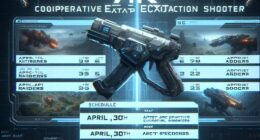Massachusetts Company to Modernize US Army BORIS Anti-Explosives Software
The U.S. Army is taking significant steps towards enhancing its counter-unexploded ordnance capabilities through a new contract awarded to Woburn-based autonomy developer, Scientific Systems. The focus of this collaboration is on refurbishing the army’s cutting-edge Buried Object Reporting and Identification System (BORIS), a solution initially crafted for civilian bomb disposal initiatives.
BORIS stands out for its comprehensive suite of modern software functionalities designed to support civilian bomb disposal missions. Managed by the Army’s Humanitarian Demining Research and Development, it embodies an advanced approach with capabilities spanning scanning, identification, visualization, data processing, and range estimation. These features collectively empower technicians and engineers to perform their critical tasks with enhanced efficiency and safety.
One of the key attributes of BORIS is its user-friendly graphical user interface (GUI). This interface facilitates seamless information exchange across various sensor platforms and ensures effective coordination among field squad members who may have different levels of expertise.
In an effort to elevate its practical utility, the software also integrates an automatic target recognition (ATR) function. The ATR function is paramount in refining sensor data analysis, a process that noticeably boosts detection sensitivity while concurrently reducing false alarms. The outcome is a markedly quicker and more reliable clearance of dangerous zones, a crucial aspect in demining operations.
Scientific Systems has shed light on the significant global footprint of BORIS, noting its deployment in a range of humanitarian mine-clearing organizations throughout the Middle East, Asia, and Europe, Ukraine included. Beyond the realms of humanitarian efforts, BORIS’s utility also extends to bomb test sites and munitions development applications. To date, according to the company, BORIS technology has been instrumental in addressing thousands of unexploded ordnances, covering “millions of square meters of land”.
“In the wake of conflicts, the remnants of war including undetonated bombs and other explosives have triggered humanitarian crises by blocking access to aid, preventing families from returning home, and killing innocent civilians,” said Kunal Mehra, President of Scientific Systems. He highlighted the critical nature of clearing former battlefields of explosives as a dangerous yet pivotal task. However, Mehra is optimistic about the transformative impact of new technologies in this domain.
He continued, “Game-changing new technology is helping to make this process more effective, efficient, and safer. Our BORIS software has played its part in this effort by providing governments and humanitarian organizations with a powerful tool to remove unexploded ordnance and help people across the globe rebuild their lives after the battle has ended.”
The modernization of BORIS by Scientific Systems represents a forward leap in making humanitarian demining operations not just more efficient but also significantly safer. With its enhanced capabilities, BORIS is poised to contribute even more profoundly to global efforts aimed at mitigating the dangers posed by unexploded ordnances, thereby facilitating the healing and rebuilding of communities ravaged by conflict. This initiative underscores the pivotal role that technology plays in modern humanitarian efforts, offering hope and tangible help in the face of adversity.










